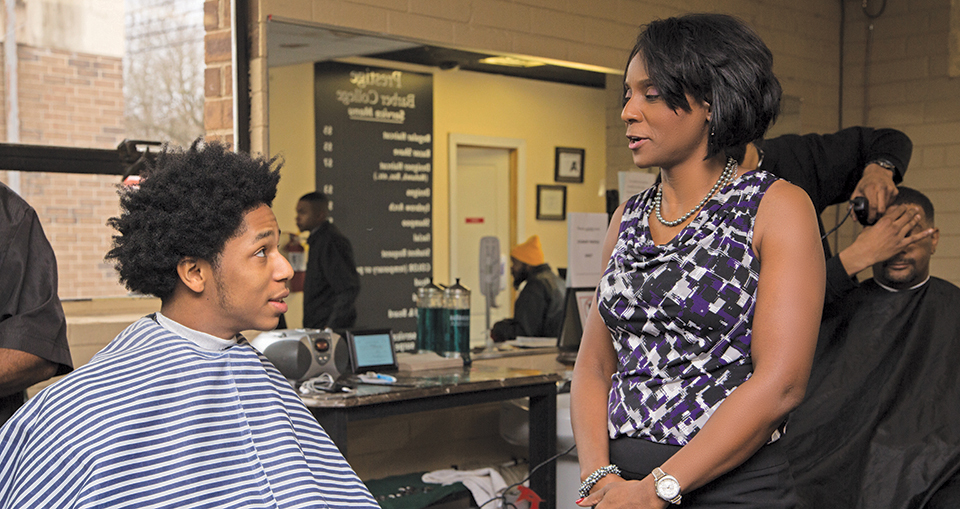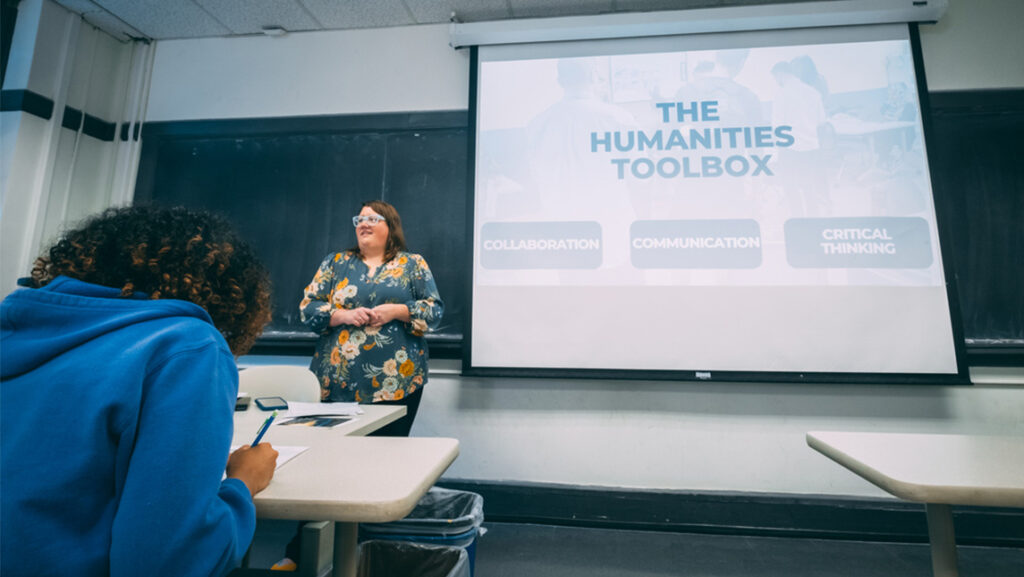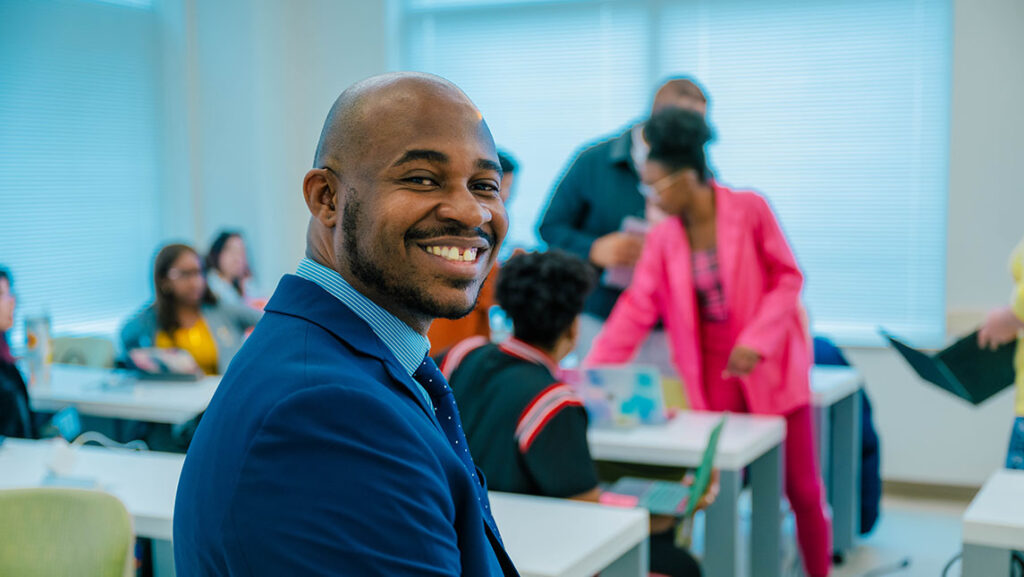From the spring 2017 UNCG Research Magazine
African American barbershops have long been places for the black community to open up, to speak freely.
And Dr. Tanya Coakley is looking to them in her attempt to help foster better health communication between fathers and sons.
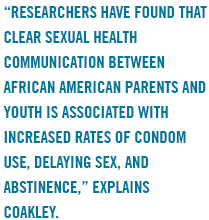 Coakley, a professor in the Department of Social Work, recently received a prestigious R15 grant from the National Institute of Child Health and Human Development, to study how African American fathers talk to their sons about sexual health. One of the study goals is to reduce sexually-transmitted diseases and teen pregnancy.
Coakley, a professor in the Department of Social Work, recently received a prestigious R15 grant from the National Institute of Child Health and Human Development, to study how African American fathers talk to their sons about sexual health. One of the study goals is to reduce sexually-transmitted diseases and teen pregnancy.
She has enlisted a network of barbershops in Greensboro, Charlotte, and Reidsville to help recruit participants.
“One of the main issues with research in health involving black men, is that they may not want to participate; it can be hard to reach them,” Coakley says. “Barbershops are pillars in the African American community. People respect them. They turn to barbershops to get information or vet programs. So that seemed like a natural resource to tap into.”
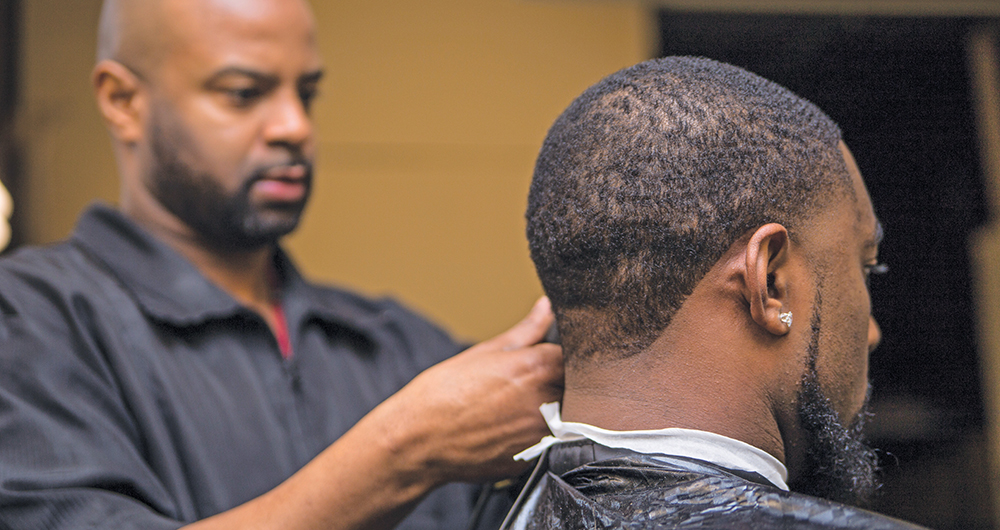
The research includes collaborators at NC A&T State University and Duke University.
Coakley, who has been with UNCG for 12 years, co-directed a similar study in 2015 that involved 29 African American fathers of middle-school-aged sons. Researchers hosted focus groups in barbershops.
In the current study, Coakley will focus on pre-adolescent sons.
“We would like to reach boys before they engage in sexual activity,” she says. “We’re helping fathers think about what to say to their sons and when to say it. It may be at a time when they’re driving with their sons or maybe sitting on the couch watching a game.”
![Coakley [Photo by Mike Dickens]](https://research.uncg.edu/wp-content/uploads/2017/07/IMG_9968-e1500921791332.jpg)
Coakley is determining the frequency of the conversations taking place and examining the content of those conversations.
“We’ll talk to fathers and sons,” she says. “Because sometimes the father’s report will be different from the son’s. They may think they said something or covered a topic, but the son heard something different.”
What fathers should not do, Coakley has found, is glorify sex in sharing their own experience or, for that matter, solely talk about the negative aspects of sex, which might cause sons to dismiss anything else they have to say.
But many fathers, Coakley says, don’t feel prepared to talk about sex with their sons.
“They may not feel they have the knowledge,” she says. “Their fathers may not have had those conversations with them. So it’s sort of like a cycle. They can’t teach their sons what they don’t know.”
Some fathers, she found, also fear being too forthcoming.
“They’re concerned they might give their sons too much information, or that their sons might be intimidated and not want to have a second conversation,” Coakley says. “Fathers want to give just enough information in a way that encourages sons to keep the lines of communication open.”
